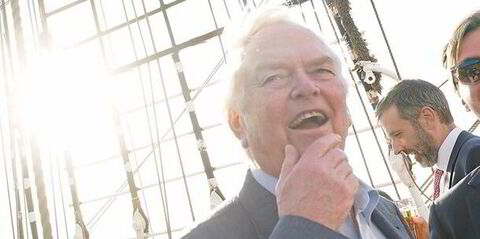The main cause of the sinking of the El Faro was the decision to navigate too closely to the path of a major hurricane, the US Coast Guard’s Marine Board of Investigation said in its highly anticipated report.
The findings put most of the responsibility for the sinking on the ship’s master Michael Davidson who decided to keep the 5,330-lane-metre El Faro (built 9175) on its path despite warnings about Hurricane Joaquin.
But the MBI also cited the El Faro’s owner, TOTE Services, for four violations which will result in civil penalties. The MBI also made numerous recommendations aimed to mitigate issues of cargo shift, cargo-hold flooding and open-top lifeboats, which were also cited in the casualty.
Thirty-three seafarers lost their lives due to the casualty which occurred two years ago.
The sinking of the El Faro “resulted in the highest death toll from a US commercial vessel sinking in almost 40 years,” the US Coast Guard’s Marine Board of Investigation said in its report. The sinking “ranks as one of the worst maritime disasters in US history.”
The El Faro was on its regular voyage from Florida to Puerto Rico on 29 September when Joaquin intensified into a hurricane. The hurricane “defied” forecast and usual tracking patterns to head southwest.
Despite the El Faro receiving those weather reports, “the master directed the ship southward of the direct course to San Juan, which was the normal route.
“The master’s southern deviation ultimately steered El Faro almost directly towards the strengthening hurricane,” the MBI said.
The MBI says the El Faro began taking on water in the rough seas accompanying Joaquin. The water flooded one of the cargo holds. And the ship ultimately lost propulsion and began drifting the to “hurricane force winds and seas.”
As part of its investigation, the MBI made 31 recommendations to address issues surrounding the incident.
Among the recommendations are alarms for alerting the navigation bridge about water in cargo holds; eliminating open-top gravity launched lifeboats; and better monitoring and tracking of weight shifts in cargo holds.
The MBI also recommended that an anonymous ship-to-shore hotline be put in place to allow seafarers to “report urgent and dire safety concerns that are not being adequately addressed onboard the ship or by shore based company resources in a timely manner.”
Along with the recommendations, TOTE was cited for failure to comply with work-rest requirements for the El Faro’s crew, certain emergency procedures, and failure to notify the USCG and American Bureau of Shipping about repairs to lifesaving appliances and repairs to the El Faro’s propulsion system.


